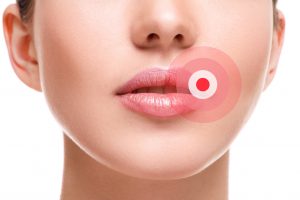
New research, however, suggests the tide may be turning.
More than half of all Americans are infected with the herpes simplex virus or HSV, yet you might never know it. In many, it can stay dormant, while in others, it can emerge, subside, and re-emerge throughout their lives.
The virus is spread through close contact with infected individuals, and symptoms include cold sores, eye diseases, and genital lesions. HSV symptoms are often triggered by stress, illness, or UV rays.
When flare-ups occur, it’s all about finding ways to manage symptoms until they go back to sleep.
When you’re stressed or have a fever, or even exposed to UV light, your immune system releases an inflammatory cytokine called interleukin 1. This cytokine may also reactivate HSV to trigger cold sores.
The reactivation may be linked to a protein called DLK. Put simply, when interleukin 1 stimulates DSK, cold sores and other HSV symptoms can occur. This new finding suggests finding ways to target DSK may lead to long-term treatment, or a potential cure, for HSV.
For now, however, the best way to prevent flare-ups is to limit stress, follow a healthy lifestyle, and focus on an anti-inflammatory diet. Because the virus preys on the body’s stress response, limiting stressful situations and promoting immune strength is paramount.
Eating more fruits and vegetables, fish, nuts, olive oil, and lean meats while limiting processed foods, refined grains, and sugary drinks and snacks may help limit inflammation to reduce the risk of flare-ups.
Good sleep and finding ways to reduce stress and anxiety are also very helpful. Exploring ways to improve and focus on mental health, like therapy, mindfulness, a new hobby, or reaching out to friends, may all offer some assistance in this area.